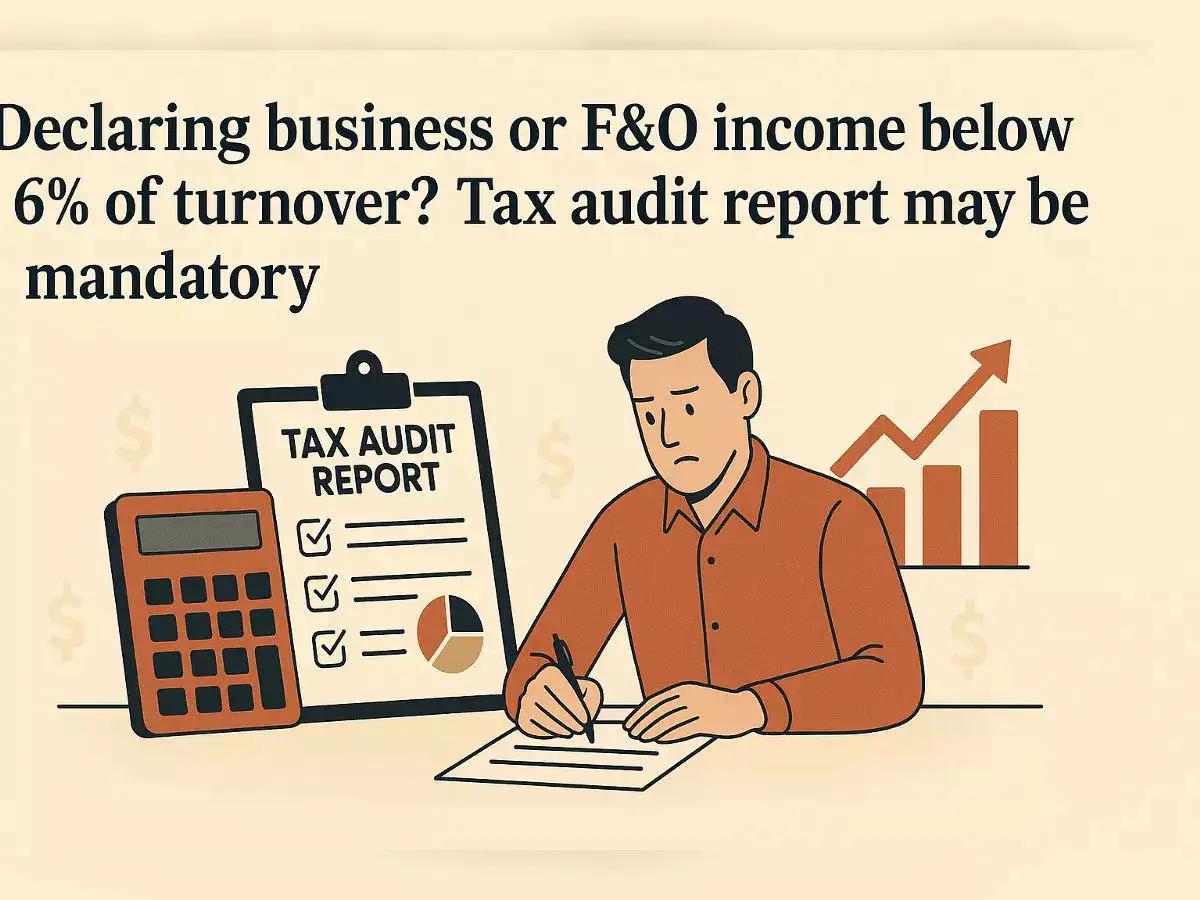By Neelanjit Das
Copyright indiatimes

Chartered Accountant Aditi Bhardwaj said on X (formerly Twitter) that if your declared business income / loss is less than 6% of your turnover, you may be subject to tax audit rules. If you are supposed to have a tax audit done but haven’t completed it, the tax department could issue you a notice.Income Tax GuideIncome Tax Slabs FY 2025-26Income Tax Calculator 2025New Income Tax Bill 2025Bhardwaj said on X: “If you intend to declare profits less than the presumptive rate of 6%, a tax audit is needed, irrespective of turnover. The only relaxation is when your total income, excluding the F&O losses, is less than the basic exemption limit. Please note, not getting an audit is your risk and not the CA who advises you not to get the audit done. If you have F&O losses to be carried forward, please safeguard this with an audit and avoid penalty too. Reiterating that this is my opinion. You may have a different stand and you are welcome to take the risk.”Chartered Accountant (Dr.) Suresh Surana said that Aditi is right. Surana said: “If profits are shown at less than 6% / 8%, and total income exceeds the basic exemption limit, then tax audit is compulsory, irrespective of turnover. However, if total income is below the basic exemption limit, then no tax audit is required, even if profits are less than presumptive rates.”Also read: Son applies for late father’s bank job on compasionate grounds, gets no response for years, files case, wins Rs 1 lakh, Allahabad High Court orderAccording to Surana the relevant provisions are as follows:Section 44AD(1) of the Income-tax Act, 1961 (hereinafter referred to as ‘the IT Act’) provides for presumptive taxation at 8% of turnover/gross receipts (6% where receipts are through digital modes).Section 44AD(5) states that if an eligible assessee declares income lower than the deemed rate (i.e. < 8% / 6%), and his total income exceeds the basic exemption limit, then the provisions of section 44AB (tax audit) shall apply.Section 44AB(e) requires such taxpayers to maintain books of account and get them audited.Surana said: “As such, the interpretation of Aditi Bhardwaj of audit being applicable in that scenario is correct. The law does not provide relaxation merely because turnover is below a certain threshold. As such, if an assessee under Section 44AD, reports income below 6%/8%, then tax audit is mandatory under Section 44AB, unless the total income is below the basic exemption threshold.”Also read: Taxpayer wins case in ITAT Mumbai: Rs 1 crore tax demand quashed after TDS mismatch in Form 26ASApplicability of tax audit & opting presumptive taxation u/s 44ADThe table below summaries the situations when an income tax audit is needed: Serial Number Scenario 1 (turnover less than Rs 1 crore) Scenario 2 (Turnover between 1 crore and 2 crore) Tax audit requirement Cash receipts/payments need not be tested. No tax audit is required. ITR-3 can be filed under normal provisions. If you choose to declare profit less than 8% of total turnover, then tax audit can become mandatory. The correct position is that if cash receipts and payments are within 5% of the total receipts / payments respectively, the turnover ceiling for presumptive taxation would be Rs 3 crore (and not Rs 2 crore). Presumptive taxation You can choose to opt for presumptive taxation scheme under Section 44AD. If choosing presumptive taxation, 8% of the turnover can be deemed to be profit If cash receipts and payments are within 5% of the total receipts / payments respectively, the turnover ceiling for presumptive taxation would be Rs 3 crore.Also read: Taxpayer deposits Rs 20 lakh in NRE bank account, skips ITR; income tax dept issues notice but he wins in Gujarat High Court for this reasonIn scenario 1 and 2, If you opt for a presumptive taxation scheme and for five years show actual profit less than 6% or 8% of the turnover, then tax audit becomes mandatory if the total income is more than the basic exemption limit. Bhardwaj also said that the presumptive taxation scheme can’t be availed for successive five years.